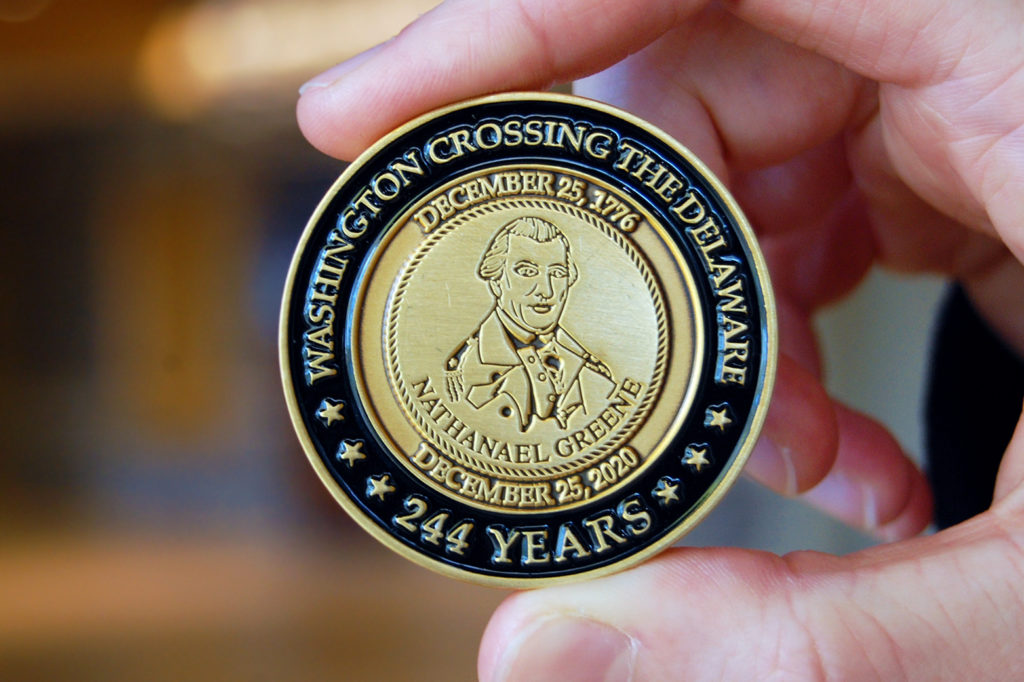
Washington Crossing Historic Park’s 2020 Challenge Coin is now available. Cost is $17.76, including tax. Shipping is an additional fee.
The Major General Nathanael Greene Challenge Coin can be purchased in the Visitor Center gift shop or on our website.
Every year between now and 2026—the 250th anniversary of the crossing of the Delaware River—Washington Crossing Historic Park will release a new challenge coin. The back of each year’s coin will feature a different officer in the Continental army, while the front features the crossing as depicted in Emanuel Leutze’s “Washington Crossing the Delaware” painting.
About Major Nathanael Greene
Major General Nathanael Greene was considered to be George Washington’s most trusted military subordinate. In a letter to Congress, Washington described Greene as “a Gentleman in whom I place the most intire confidence.”
On December 19, 1776, Greene acted as an extension of Washington, writing to General James Ewing to request that he bring 16 Durham boats and four ferries to McConkey’s Ferry in preparation for the Christmas night crossing.
Despite his lack of formal military training—he was a foundry owner and a politician prior to the Revolutionary War—Greene proved himself to be a formidable battlefield commander during the Ten Crucial Days campaign. En route to Trenton immediately after the crossing, Washington divided his men, placing Greene in charge of one of the two divisions. Greene and his soldiers, accompanied by Washington, attacked the upper part of Trenton and quickly surrounded the Hessian regiments.
The Continental Army went on to win the Battle of Trenton, of course, capturing more than 900 Hessian soldiers in the process. Eight days later, they also won the Battle of Princeton, securing more prisoners, arms and supplies.
Washington is believed to have had so much confidence in Greene’s abilities that it was rumored that Greene would take command of the Continental Army should anything happen to Washington. Following the war, with Washington as president, it’s likely that Greene would have been asked to serve in his cabinet. However, Greene’s life ended abruptly in 1786 when he died of heat stroke.

